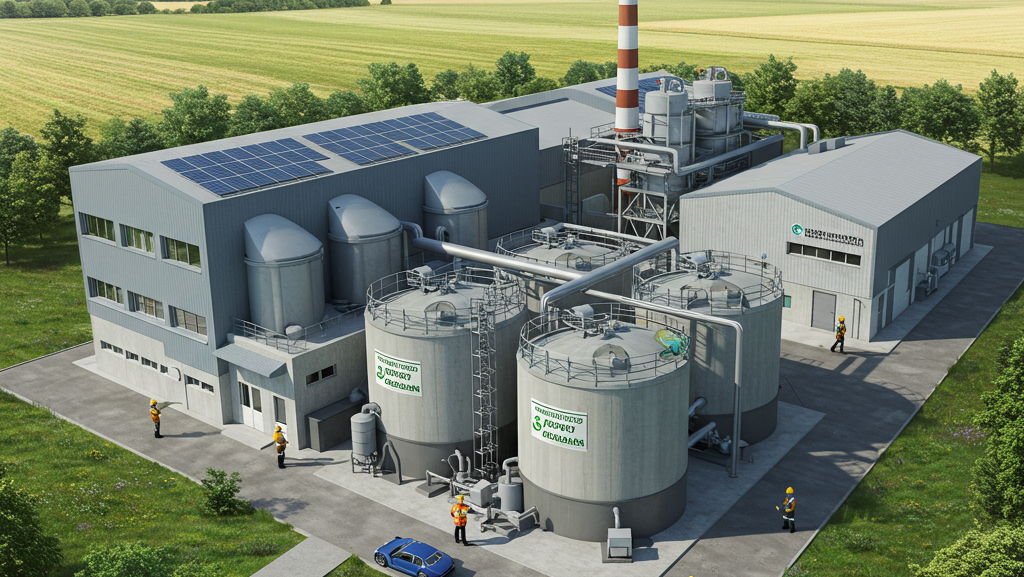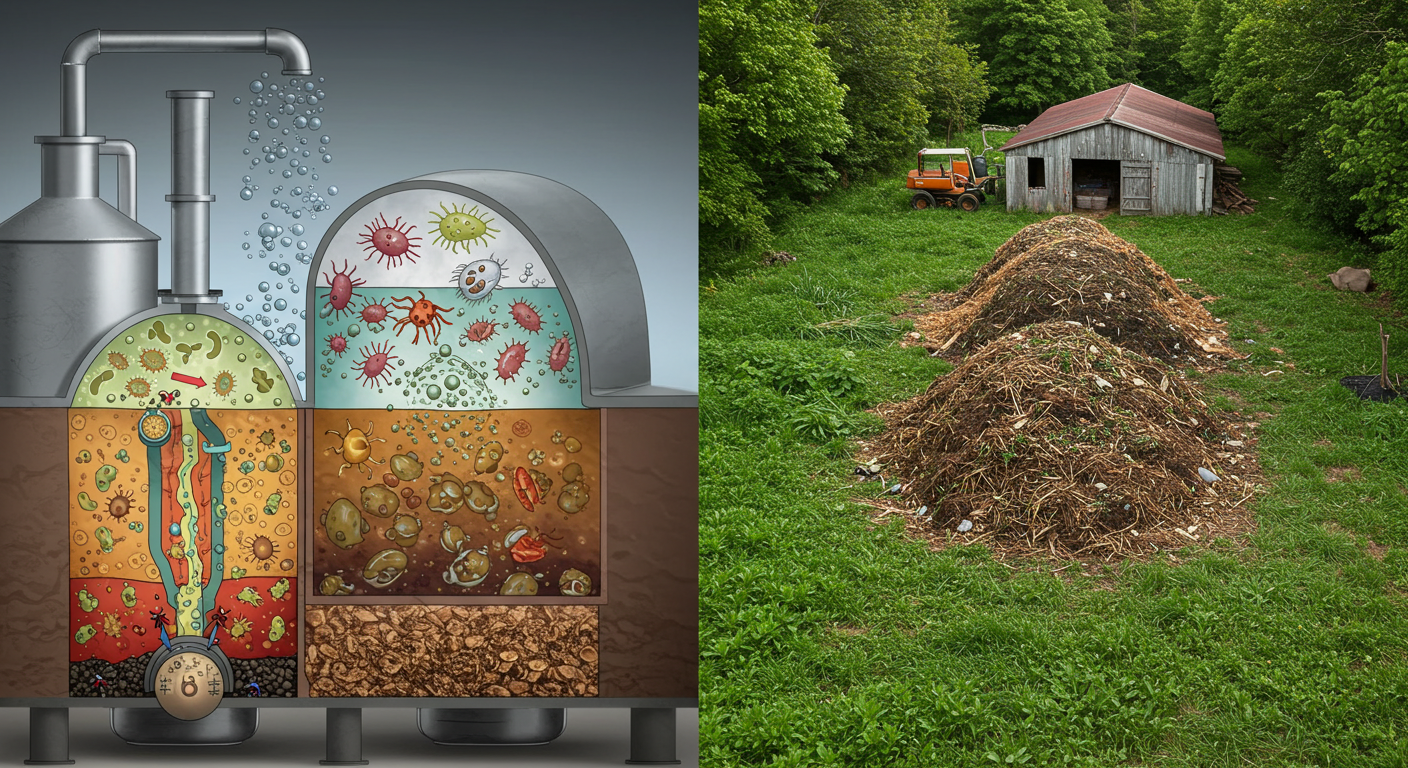The Problem with Traditional Cooking Fuels
Traditional cooking fuels, such as charcoal and firewood, are widely used in many households around the world. However, their reliance presents significant challenges that not only impact the environment but also the health of individuals. One of the paramount issues is the alarming rate of deforestation associated with the excessive harvesting of fuelwood. According to studies, millions of hectares of forest are lost each year due to the demand for firewood. This deforestation results not only in habitat loss but also in a severe decline in biodiversity, as numerous species lose their natural habitats and an ecological balance is disrupted.
Moreover, the health implications tied to burning traditional fuels cannot be overlooked. When charcoal and firewood are burned, they release harmful smoke that contains a mixture of toxic compounds. This smoke poses significant respiratory risks, particularly for vulnerable populations such as women and children, who are often in close proximity to cooking fires. The World Health Organization attributes a substantial number of premature deaths to indoor air pollution caused by these traditional cooking methods. Consequently, the reliance on such fuels contributes not only to environmental degradation but also exacerbates public health issues.
In addition to the ecological and health concerns, the use of traditional fuels often involves fossil fuels, which contribute to an increase in greenhouse gas emissions. As these emissions accumulate, they exacerbate climate change, further highlighting the urgent need for a transition to cleaner cooking alternatives. This transition is vital in mitigating the adverse effects of deforestation, safeguarding biodiversity, and protecting the respiratory health of populations that depend on traditional fuels for their daily cooking needs. The challenges presented by traditional cooking fuels serve as a clarion call for the adoption of sustainable cooking solutions that prioritize both health and the environment.
Mupundu Energy’s Solution: Biogas Production
Mupundu Energy has taken a transformative approach in addressing the challenges of clean cooking through the innovative production of biogas. At the core of this initiative is anaerobic digestion (AD), a biological process wherein organic waste is broken down in the absence of oxygen, resulting in the generation of biogas. This renewable fuel is primarily composed of methane, which can be used effectively as a clean cooking alternative to conventional fuels.
The feedstock utilized in the biogas production process is diverse, including agricultural residues, livestock manure, and food waste. By harnessing these organic materials, Mupundu Energy not only facilitates waste management but also promotes sustainability in energy production. This approach not only aligns with environmental goals but significantly minimizes greenhouse gas emissions compared to traditional fossil fuels.
The advantages of using biogas as a cooking fuel are manifold. Firstly, it is a renewable energy source, which means that it has the potential to be replenished naturally, offering a sustainable solution for energy needs over the long term. Moreover, the use of biogas contributes to improved air quality, as it significantly reduces indoor air pollution, which is a common health hazard associated with burning biomass and other conventional cooking fuels. The health benefits manifest through reduced respiratory and cardiovascular conditions stemming from cleaner combustion processes.
Another pertinent advantage is the cost-effectiveness of biogas compared to traditional fuels. Households can experience significant savings on their energy bills while participating in the circular economy, as they convert waste materials into a useful energy source. Mupundu Energy’s biogas initiative stands as a resilient model in the shift towards sustainable fuel options, ensuring that communities can leverage local resources to improve their energy security and overall well-being.
Implementation and Community Engagement
Mupundu Energy is committed to making sustainable fuel accessible through innovative strategies that emphasize community engagement and practical implementation. Central to these initiatives is the distribution of biogas, which is processed and bottled for convenience, making it an attractive alternative to traditional cooking fuels. This approach not only streamlines the delivery of biogas to households but also assures a steady supply, empowering families to adopt cleaner cooking practices seamlessly.
Recognizing that knowledge is key to effective utilization, Mupundu Energy has established comprehensive community training programs. These programs focus on the proper use of biogas stoves, showcasing the significant advantages of biogas as a clean cooking solution. Participants are taught to operate these stoves efficiently, ensuring that they can fully harness the benefits of renewable energy. The training sessions also aim to raise awareness about the environmental and health impacts of traditional cooking methods, fostering a deeper understanding of why transitioning to biogas is essential for sustainable living.
The outreach efforts of Mupundu Energy are further strengthened through strategic partnerships with local organizations, government entities, and non-governmental organizations (NGOs). Collaboration with these stakeholders enables the extension of sustainable practices beyond individual households, encouraging a broader cultural shift towards cleaner energy. These partnerships facilitate the sharing of resources and knowledge, enhancing the effectiveness of community engagement endeavors. By working together, these entities can amplify their efforts, ensuring that more individuals benefit from clean cooking solutions, thereby contributing to the overall sustainability goals aimed at reducing dependence on fossil fuels.
The success of Mupundu Energy’s initiatives hinges on active community involvement and the collective commitment to embracing environmentally friendly practices. By investing in both the infrastructure required for biogas distribution and education for consumers, Mupundu Energy is paving the way for a future where clean cooking is not only a choice but a norm embraced by all.
Environmental and Economic Impact
Mupundu Energy’s commitment to sustainable fuel through biogas production has significant implications for both the environment and the local economies in which it operates. By offering an alternative to conventional sources of energy, such as firewood and charcoal, Mupundu Energy actively contributes to the reduction of deforestation rates. The reliance on firewood is one of the leading causes of forest degradation, negatively impacting biodiversity and the essential ecosystems that forests support. Through promoting biogas as a cleaner cooking fuel, Mupundu Energy helps mitigate these adverse environmental effects, ultimately fostering a healthier planet.
In addition to safeguarding forests, biogas production offers a notable reduction in greenhouse gas emissions. Traditional biomass fuels release considerable amounts of carbon dioxide and other harmful pollutants into the atmosphere, exacerbating climate change. By contrast, biogas is produced through the anaerobic digestion of organic materials, a process that generates significantly lower emissions. Utilizing biogas as a cooking fuel thus plays a pivotal role in combating the climate crisis while fulfilling energy demands sustainably.
Moreover, Mupundu Energy’s initiatives promote local economic growth by creating job opportunities within the biogas production process. The establishment and operation of anaerobic digestion (AD) plants require skilled labor for the collection of feedstock, management of the digestion process, and the subsequent distribution of the produced biogas. These roles not only provide income for local workers but also stimulate ancillary economies by generating demand for services and materials needed in the biogas supply chain. This multifaceted approach to economic enhancement illustrates Mupundu Energy’s dedication to uplifting communities while advocating for sustainable energy solutions.





